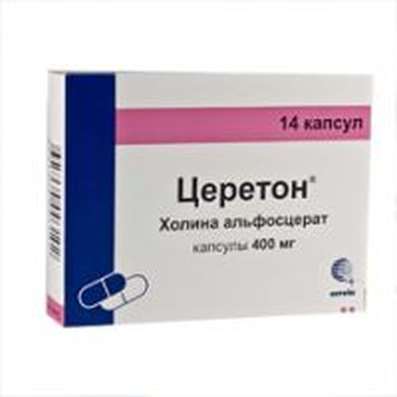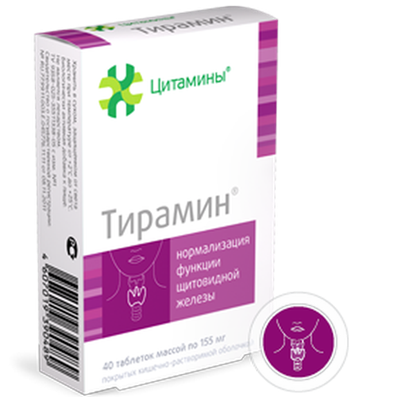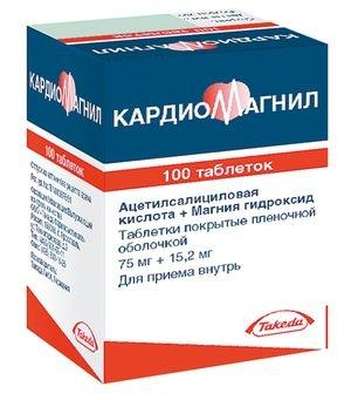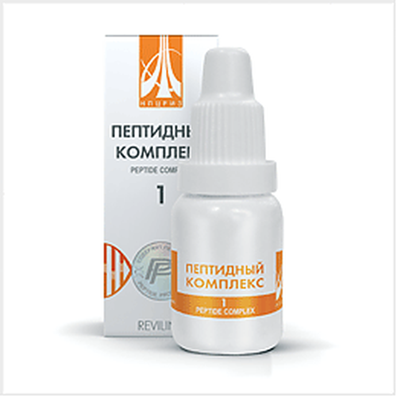Homeopathy and pregnancy: effectiveness and safety
15 Oct 2018
The fact that each drug has not only indications for use, but a list of contraindications (sometimes quite extensive), is well known to every Apothecary. Limit the possibility of appointment can not only the properties of the drug itself, but also the peculiarities of the patient's condition: the presence of chronic diseases, individual tolerability of drugs, age, etc. And, of course, we must not forget that a serious contraindication to the use of many drugs is such an important period in a woman's life, like pregnancy.
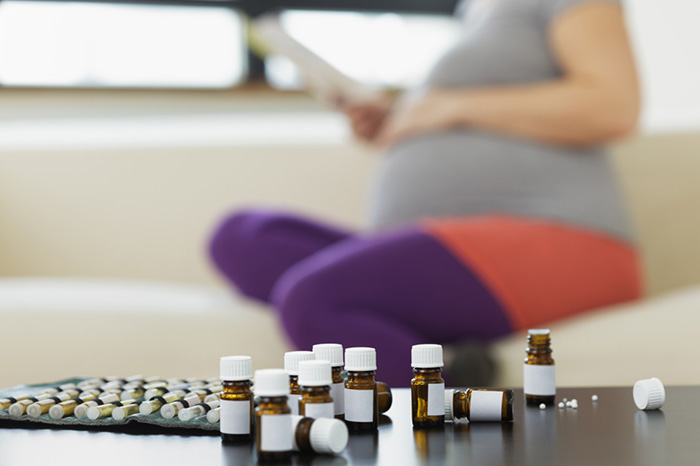
Pregnancy: drug safety regulations
As you know, any substances that can penetrate the placental barrier, one way or another affect the development of the fetus and the course of pregnancy. The state of the baby's health is affected by everything that affects the mother's body: the emotional atmosphere in the family, the ecology of the modern city, the inner experiences of the woman, as well as the food she has eaten and medications taken. Proceeding from this, ideally a baby should be fully healthy woman in a calm environment, away from urban stress. But, unfortunately, it is almost impossible to implement such recommendations, the future baby has to experience the influence of various risk factors, among which the most common is the use of a pregnant woman with medicines.
The most dangerous period in this respect is the first trimester of pregnancy, especially in cases where a woman does not immediately realize her condition and takes any toxic drugs that can disrupt the correct formation of the baby's organs. But in the next two trimester, many medicinal substances can also cause serious problems during pregnancy and further development of the child.
All of the above compels doctors to be as cautious as possible in prescribing a course of treatment for a future mother. Employees of pharmacies should also take extremely responsive to the recommendation of any medications to pregnant women, and first of all it applies to cases when the customer appeals to the pharmacist for the OTC drug not prescribed by the attending physician.
Of course, categorically dissuade the visitors from acquiring a drug of interest to them, there is no sense - a woman can just buy it in another pharmacy, where not so scrupulous employee works. The optimal way out in this situation will be to offer a safer means, thus the pharmacist will not only provide qualified assistance, but also establish a more trusting relationship with buyers.
One of the safest and effective medical methods of treatment during pregnancy has long been considered homeopathy. Even our conservative official medicine admitted that the use of homeopathic medicines allows not only to improve the condition of a pregnant woman, but also to maintain the health of an unborn baby. It is worth mentioning that homeopathy can help not only exacerbate any chronic disease in a future mother, but also facilitate the course of pregnancy, and also eliminate a number of specific for this time ailments.
Bearing a baby is a serious burden for the female body and is often accompanied by various problems that worsen the quality of life of patients, and in due course can move into quite dangerous and even threatening conditions. Therefore, the modern approach to medical management of pregnancy involves drug support for this process at all stages. However, each of the traditional medicines has an impressive list of side effects, so doctors try to limit their use to the maximum and appoint them only in cases when the benefits of treatment objectively exceed the possible risk for the mother and fetus. In fact, it turns out that before the emergence of typical clinical symptoms, the body of a pregnant woman must independently cope with the beginning of impairments. In order to stop the further development of the pathological process and normalize the state of health of the future mother and her baby, today various non-invasive methods of treatment are used, among which homeopathy occupies an important place.
Homeopathy: indications for use
Recommending that any pregnant woman should have a homeopathic remedy, the pharmacist should remind them that homeopathy presupposes an individual approach to each patient, and only a qualified doctor can prescribe an adequate treatment taking into account all the characteristics of the body. Self-management of homeopathic remedies will help to cope with unpleasant symptoms, but not always allows to completely eliminate their cause, and therefore, even starting treatment at home, do not give up the advice of a specialist.
I must say that homeopathic remedies can be recommended to a woman not only after the joyful news of the imminent addition to the family is confirmed. Acquaintance with homeopathy is better to start while preparing for pregnancy. It's no secret that the reproductive health of modern women leaves much to be desired: menstrual irregularities, problems with the hormonal background, dysbiosis of the vagina and vaginosis can not only become an indirect obstacle to conception, but also adversely affect the course of pregnancy. Even in the treatment of infertility, homeopathy can be of considerable help. It will not be superfluous for homeopathic support also in those cases when the future mother suffers from any chronic diseases, and even more so to patients who had previous pregnancies with miscarriages.
Classic pregnancy problems in the form of nausea, hypersensitivity to odors, motion sickness in transport, as well as heartburn and intestinal motility disorders will help solve complex and monotherapy drugs including Nux vomica, sulfuric and phosphoric acids (Acidum sulphuricum and Acidum phosphoricum) , as well as Bryonia alba (white steppe), Ignatia amara (beans of St. Ignacy), Alumina (alumina, alumina). Of course, such ailments, although they give a lot of unpleasant sensations, but do not pose a great danger to the health of the woman and the course of pregnancy, and therefore gynecologists are accustomed to recommending dietary treatment for their elimination, but not in all cases a simple correction of nutrition is sufficiently effective.
Another common problem of pregnancy are various pathologies of the venous walls, among which hemorrhoid and varicose veins of the lower extremities are most often encountered. If the violation has managed to go far enough, then it is likely that after the pregnancy it will be necessary to fight its consequences. Therefore, the pharmacist should remind his customers about the need for early prevention of such problems and recommend products containing Aconitum napellus (wrestler), Atropa belladonna (belladonna), Sulfur (elemental sulfur), as well as Carbo vegetabilis (charcoal), Hamamelis virginica virgin walnut), Licopodium clavatum (clown planown).
Among the drugs that are prescribed for every pregnant woman, include multivitamin and mineral complexes - a growing fruit daily consumes a fairly large amount of these important substances, the only source for which is the mother's body. And in this case homeopathic preparations of calcium, iron, magnesium and other important macro- and microelements are the best alternative to traditional remedies. much easier to digest, do not lead to an overdose and completely cover the needs of both mom and her baby.
Homeopathy is able to cope with the most serious violations of pregnancy, including. threat of interruption. Properly selected drugs will help increase the elasticity of the uterine walls, eliminate hypertonia, strengthen the attachment of the placenta and solve the problem of partial presentation, and in some cases even stop the beginning of premature detachment of the placenta.
A few words to end the conversation ...
In one article it is impossible to tell about all the ailments and problems with which homoeopathic drugs effectively cope, or even simply list their main components. But this is not necessary. The main thing that a pharmacist should do when recommending a remedy for his customers is to remind him of the need for a follow-up consultation with a homeopathic doctor or at least an obstetrician-gynecologist.
Often, visitors to the pharmacy are interested in which of the dosage forms of homeopathic medicines is more effective, because the modern pharmacy has an impressive arsenal: water and alcohol drops for ingestion, sugar balls, granules and resorption tablets, ointments, oils and even sprays and injections. There is practically no significant difference in the effectiveness of such forms, the choice primarily depends on the individual ease of use. Some experts believe that the reception of pellets and granules allows you to more accurately observe the required dosage, and alcohol solutions and oils give a slightly higher risk of adverse reactions to the solvent. But all this is only the opinion of some homeopaths, which does not have any proven confirmation.
In general, it can be said that even complex homeopathic medicines that are not individually calculated are much safer than most traditional drugs and, with strict adherence to instructions, are not inferior to them in efficiency.

 Cart
Cart

